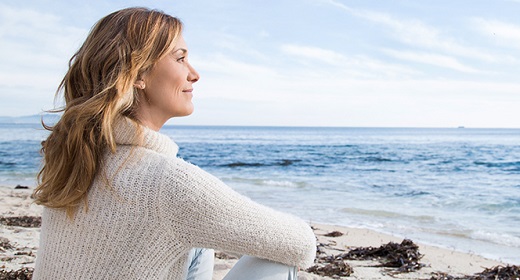by Deepak Chopra, M.D.: If you want next year to be better than ever, you need to think about making changes…
meaning improvements—in your life. Instead of picking out a single bad habit or negative part of your life, which is how the vast majority of people approach New Year’s resolutions, do something different: go into the whole issue of how people actually change—or don’t. The kind of change that’s most desirable helps body and mind to do what they naturally are designed to do: renew and revitalize themselves without interference.
How to Recharge the Body and Mind
You can recharge the battery in a smartphone by plugging it in, but the body-mind is more complicated, Everyday life is a mixture of constant change and nonchange. Your body today looks the same as your body yesterday, and yet it isn’t the same, because starting at the level of the cell, there is ceaseless renewal—cells are born, mature, divide, and die—yet the inner operation of the cell keeps it intact at every stage for months or years at a time, depending on what kind of cell it is.
The same holds true for the mind. A mature mind has a set of beliefs, habits, and understanding that persists from day to day and year to year, yet at this moment your stream of thoughts and sensations is unique and different from any previous time. The reason that people cannot keep their New Year’s resolutions for more than a month or two is that this picture of change balanced with nonchange hasn’t been properly understood. If you fight against a bad habit, the effort you put into making any change works against the natural, effortless flow of the body-mind. As few as two percent of dieters manage to lose 5 lbs. and keep it off for two years. The struggle to diet year after year indicates that there’s a stalemate, and the reason isn’t that your body opposes you. What it opposes is struggle.
To make lasting change in either body or mind—the two should actually be considered as an indivisible whole—an attitude of non-struggle is essential. Non-struggle removes the element of stress, and once that happens, the natural balancing tendency of body and mind begins to take over.
The Self-Care Movement
The emerging self-care movement is based on adopting a caring attitude rather than one based on risk assessment, constant vigilance, and the whole package of judgment against the body. At the heart of self-care is being conscious about how you go about your life. Habits and old conditioning are unconscious. They trigger well-worn pathways in the brain, similar to the automatic pathways employed when you drive your car without thinking. The quality of your intentions matters. Deciding to jog on a beautiful morning in a state of happy exuberance is totally different from dragging yourself out of the house and forcing yourself to run because it’s good for you.
“It’s good for you” is a deadly attitude and eventually leads to noncompliance. In effect, you have been acting both as the person feeling the stress and the person who is inflicting it. The attitude of self-care, however, is holistic. You become the person who cares for yourself and the person who experiences the care.
7 Steps to Wholeness to Embrace for the New Year
Here are the general guidelines to move in the right direction starting now and continuing into all of next year:
- Be easy with yourself. Don’t fuss over what you have done wrong. When the judgmental side of your mind raises objections, just say, “I’ve heard this before. It doesn’t help, and I don’t need it anymore.”
- Take a step back. Look at where you are putting pressure on yourself, and start to back away. Life is full of demands and duties, but these can be fulfilled with reduced stress. The key is to return to a place where you feel relaxed, comfortable, and ready to meet the next challenge. For some people, this is challenging to do, because they equate pressure with achievement. In reality, the less pressure you feel, the better you will do at work and in your life outside work.
- Meditate. This will come as no surprise. In meditation, stress is allowed to dissolve and the nervous system adapts itself to a new normal, which is restful alertness.
- Foster good sleep every night. Restful sleep is the key for a balanced state in the body-mind.
- Quiet down. Spend some quiet time and downtime every day to experience yourself alone and relaxed.
- Keep moving. Equally valuable, get up and move a little every hour. This helps relieve the inertia that results from being sedentary.
- View yourself as a conscious being. This is perhaps the most important of all. All of human life is consciousness-based, and whatever expands your consciousness in creative ways is an expression of your inner potential, which is infinite.
We are so conditioned to be divided in ourselves, so used to accepting self-judgment as normal, that the path to wholeness requires some time and patience.









































